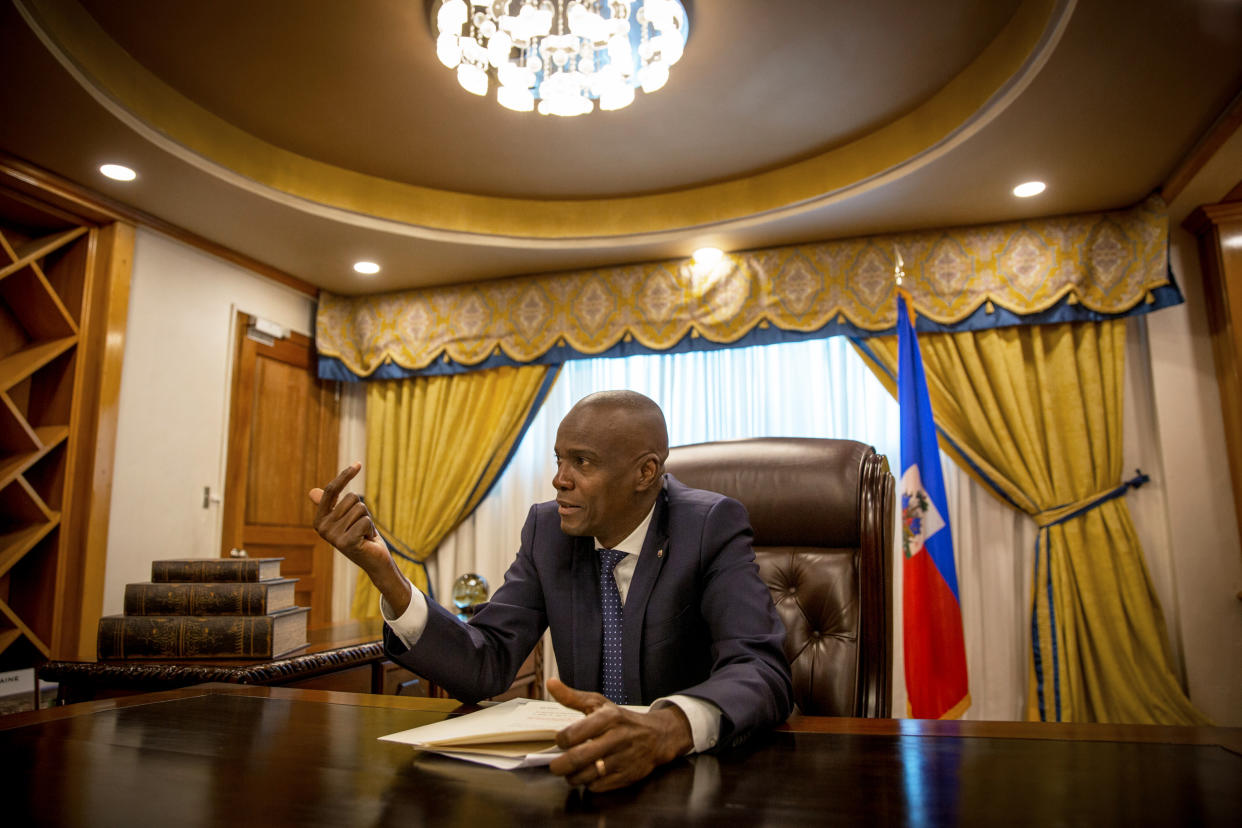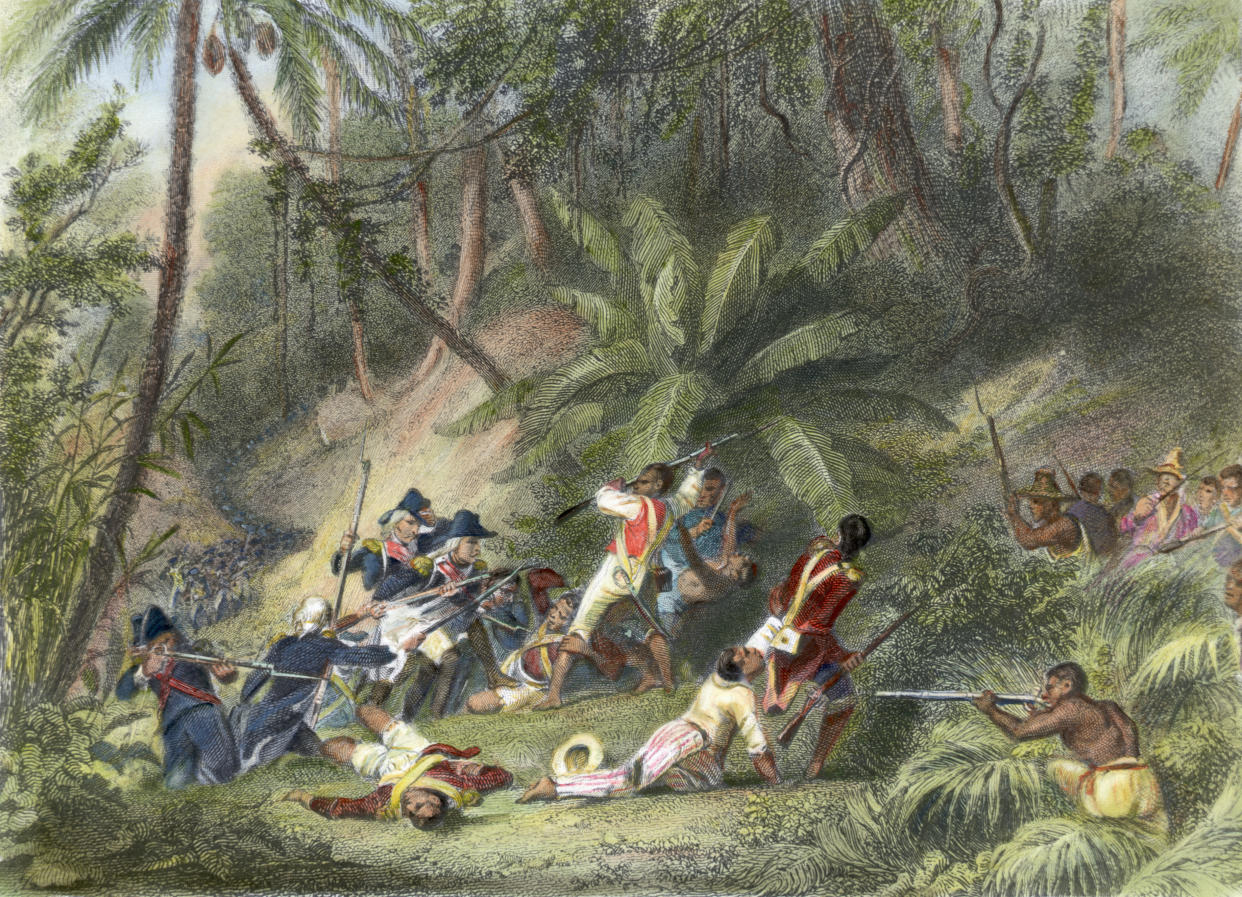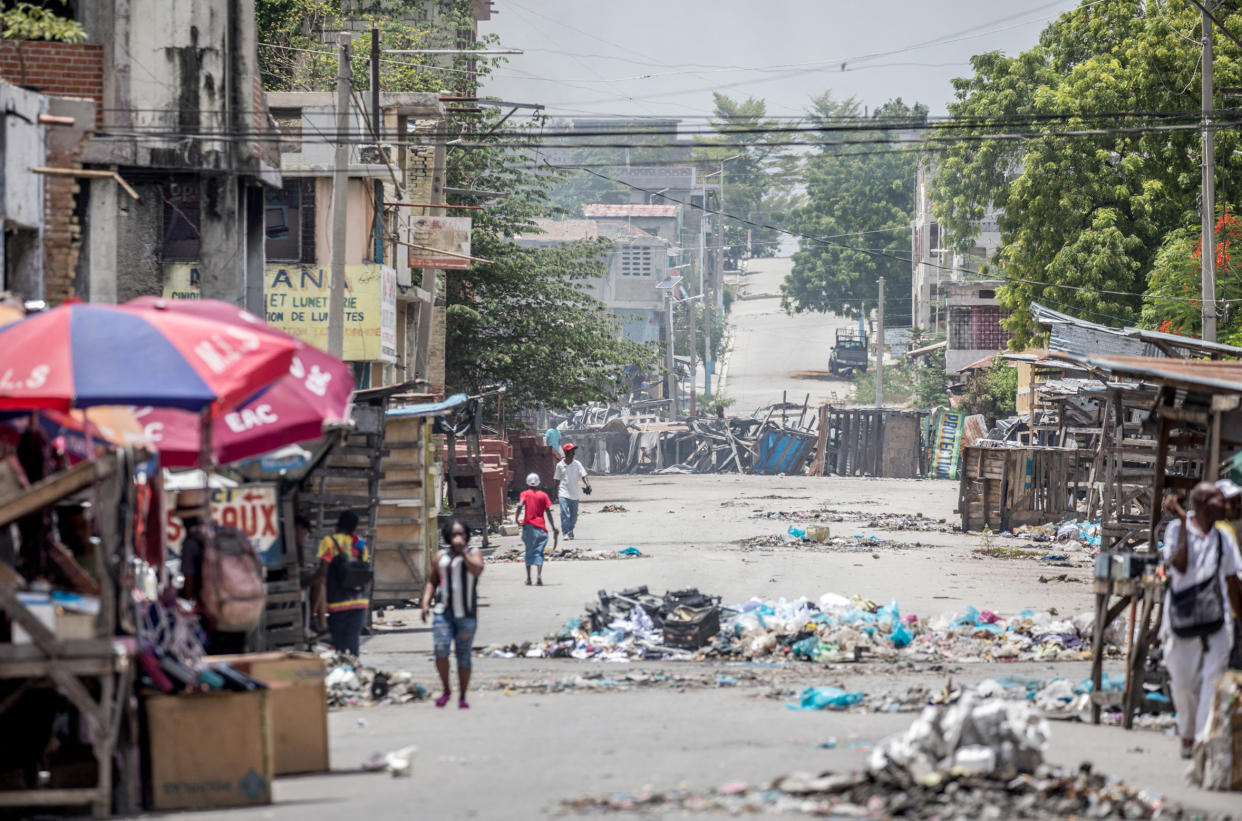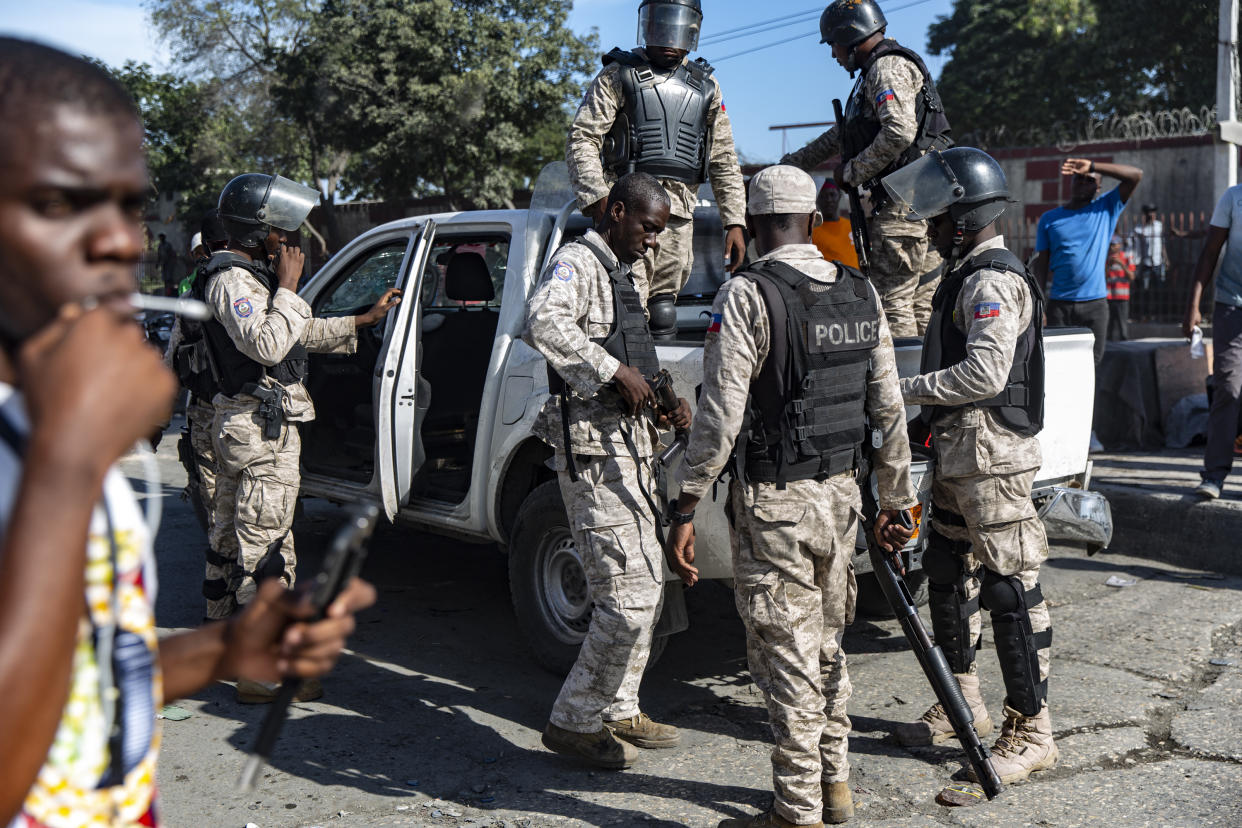The political turmoil in Haiti has deep historical roots
The assassination of Haitian President Jovenel Moïse at his home in a Port-au-Prince suburb last Wednesday was the latest flashpoint for the Caribbean nation, which was already teetering on the edge of political and economic chaos.
“We have a very deep crisis, probably as pronounced as the one we had immediately after the [2010] earthquake,” Robert Fatton, an expert on Haitian politics at the University of Virginia and a native of Haiti, told Yahoo News. “But it's a different type of crisis. Virtually all the institutions in the country are essentially being eviscerated.”
In recent years, Haiti has been inundated with gang violence owing to inadequate police leadership and long-standing mistrust of its government, Fatton said. Those factors have also played a role in weakening the nation’s already precarious economic fortunes.

But having seen the ills of foreign interference in the past, Haitians want to right their own wrongs, Jean Eddy Saint Paul, professor of sociology at Brooklyn College and founder of the CUNY Haitian Studies Institute, told Yahoo News.
“Give a chance to Haitian people to figure out their own solution, because ... in Haiti there is a strong civil society,” Saint Paul said, harkening back to the country’s origin more than two centuries ago, when Haitians held the only successful antislavery movement in world history.
“They know what they need for the country,” Saint Paul added.
In 1804, formerly enslaved Africans in Haiti revolted against their French colonizers and declared independence from France, making the western portion of the island of Hispaniola the first Black-led republic.
The international community, however, refused to recognize Haiti as its own nation until the French did so. In return for that concession, France demanded the young country pay 150 million francs, the equivalent of US$21 billion today, as reparations.
“The sum was meant to compensate the French colonists for their lost revenues from slavery,” Marlene Daut, a Haiti historian at the University of Virginia, wrote on the website of the news organization the Conversation. “Rejection of the ordinance almost certainly meant war.”

Wanting to avoid another potentially deadly military conflict, and with a French flotilla threatening invasion, Haiti agreed in 1825 to pay the sum in five equal installments, forcing the newly established country to take out loans it was initially unable to repay. Haiti defaulted on the loans, and it took 122 years to pay off the debt.
In large part due to the prolonged repayment of that debt, Haiti has never been able to build a strong economic foundation.
“With a Gross Domestic Product (GDP) per capita of US$1,149.50 and a Human Development Index ranking of 170 out of 189 countries in 2020, Haiti remains the poorest country in the Latin America and Caribbean region and among the poorest countries in the world,” the World Bank says on its website.
France, by comparison, has a GDP of US$2.7 trillion.
Compounding Haiti’s economic challenges, the destruction from the catastrophic and deadly 2010 earthquake remains a defining event for the nation. The disaster killed upwards of 250,000 people, injured more than 300,000 and left 1.5 million of the country’s 10 million citizens homeless. Haiti’s infrastructure has never really recovered.

And while the coronavirus pandemic persists and the Delta variant ravages the world, Haiti has still not administered a single COVID-19 vaccination, according to the New York Times.
Though Haiti is one of the birthplaces of democracy in the modern world, inadequate and corrupt leadership has been the norm since its inception.
“Corruption is no longer a secret but an open and accepted practice, and whatever shred of public trust there was in government has evaporated,” reporter Jaqueline Charles wrote in the Miami Herald.
On July 1, the United Nations Security Council released a statement expressing “deep concern regarding deteriorating political, security and humanitarian conditions in Haiti.” The council stressed the need for a “free and fair legislative election” this year, though many Haitians, including Fatton and Saint Paul, see the prospect of this as nearly impossible.
“If you have elections now it's going to be a disaster,” Fatton said, noting that proper legislation needs to be in place and the threat of violence from gangs diminished.

Thanks to the proliferation of gang violence, as many as 5,000 Haitians were displaced during the first 10 days of June, according to a U.N. report.
Critics of the assassinated president say he deserved much of the blame for Haiti’s current state of affairs.
Moïse had been in office since 2017 following a contested election. He had no previous political experience, but became rich as a fruit exporter. He had been ruling by decree for more than a year, after refusing to step down following the expiration of his term in February. He was killed after having dissolved Haiti’s Parliament and failing to hold legislative elections. While many Haitians disputed his leadership, critics say they wanted accountability, not murder.
“I was not a big fan of the president, but Haitian people wanted to hold a politician accountable,” Saint Paul said. “He was not like a very popular president … but no one with sense would ask to murder a president.”
“The assassination of Mr. Moïse is the culmination of years of instability in the country, which has long been seized by lawlessness and violence,” Natalie Kitroeff and Anatoly Kurmanaev wrote in the New York Times.
Despite Haiti’s current circumstances, Fatton is cautiously optimistic that the country can turn things around, as it has done in the past. He places Haiti’s fate on two main factors: the domestic political economy and interference of international powers — mainly the U.S. and France.

The U.S. occupied Haiti from 1915 to 1934 under President Woodrow Wilson and controlled Haiti’s government. During that period, the U.S. structured Haiti’s economic and social policies in a strategic way to attract foreign investment. Twice in the past 30 years, the U.S. has sent Marines to restore order — once under President Bill Clinton and then again under President George W. Bush.
“My hope is that civil society can inject into Haitian society some sort of new blood that is not only competent, but also interested in the development of the country without the type of corruption that we had before,” Fatton said.
While many in Washington are calling on President Biden to send troops to the beleaguered nation, the administration so far has committed only to bolstering security at the U.S. Embassy in Port-au-Prince. Saint Paul believes Haitians should have the autonomy to correct their problems once again.
“This is the time for the U.S. to recognize that enough is enough,” Saint Paul said. “They need the U.S. to step back and let Haitian people figure out their own solution.”
Cover thumbnail photo illustration: Yahoo News; photos: Hector Retamal/AFP via Getty Images, Alejandro Cegarra/Bloomberg via Getty Images
_____
Read more from Yahoo News:


